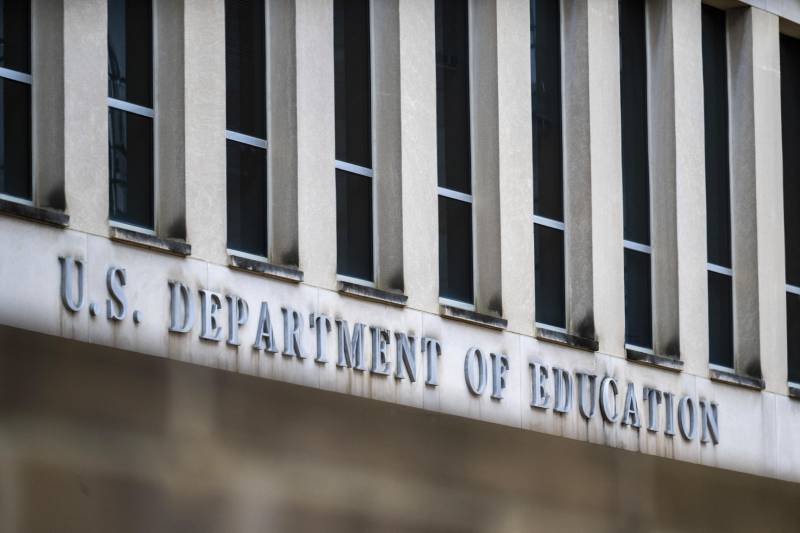The next 100 days will reveal how the White House handles debt
President Trump's administration is facing scrutiny over its handling of debt, with Republicans weighing the benefits of extending his tax cuts against the risks of adding to the national debt.

One hundred days into President Trump's second term, your feelings about the administration’s performance so far probably depend in large part on how you voted.
The White House and its allies will say that the most important thing has been immigration, pitching its border and interior enforcement as a stunning success — with a good bit of supporting evidence.
Democrats, on the other hand, are ceaselessly reminding people of the administration's shortcomings, such as the elusive peace deal in Ukraine that candidate Trump promised, or the apparent disarray in his trade policy.
Personally, I’m a lot more interested in the next 100 days. Because there is really one issue that is going to be front and center between now and August: debt.
Ordinarily, very few people in Washington care about the debt — or, to be more precise, they care very little about spending less. As one Republican senator once told me, excoriating my proposed 2018 budget blueprint, “No one in this town has ever lost his job for spending too much, but people have lost it for not spending enough.” With Republicans talking like that, you can only imagine how the Democrats feel.
We are $36 trillion in debt, with no plan at all for paying that money back? You could argue that money you take from others without intending to pay it back isn’t debt at all — it’s theft. But that’s another column for another day.
In any event, after roughly 45 years of just mercilessly weighing the country down with borrowed money, things might finally be different. Because in order for anything big to happen in the next 100 days, people are going to have to get serious about the debt.
The reason is straightforward: President Trump wants to extend his eponymous tax cuts from 2017. He also wants very badly to follow through on his campaign promises of, among other things, no taxes on tips and no taxes on Social Security benefits (at least for some people).
It is Republican orthodoxy that tax cuts — letting people keep more of their own money — aren’t the same as spending. And that is a true statement, but it is equally true that reducing government revenue streams without corresponding spending reductions will add to the debt.
Depending on whom you believe, the current plan that is floating around on Capitol Hill could result in one of the largest increases in our debt since the ObamaCare drunken-sailor-spend-fest. One group even estimates that a current iteration of the tax plan could add more debt than the American Rescue Plan, the Tax Cuts and Jobs Act, the CARES Act, and the bipartisan infrastructure law combined.
Are there four Republican members of the House so uncomfortable with that avalanche of additional debt that they will insist on meaningful spending reductions? On paper, the answer is probably yes. In reality, the answer is closer to maybe.
Just as critical is how the bond markets react to that flood of red ink. Fiscal conservatives have been waiting for decades in vain for “bond vigilantes” to instill some sort of fiscal discipline into Washington. The bond market reaction to the tariff rollout might suggest that markets are finally getting a little skittish about repayment.
One way you can know for sure that the mountain of debt in the tax plan is going to be front-and-center in the coming months is the fact that some Republicans — including the one at the top of the ticket — are openly floating the idea of raising taxes on the “super rich.”
One thing is fair to say: This probably isn’t the 1990s anymore. George H.W. Bush’s “read my lips” road to losing office might well no longer apply in the Republican rush toward populism. After all, does anyone really think that a member of Congress will lose his or her job over raising taxes on billionaires in order to cut taxes on the other 99.9 percent of the country? That doesn’t necessarily make it a good idea, just a viable one.
Trump wants his tax cuts extended, and he should. But in order to do it, Congress will either have to cut spending or raise revenues.
In the next 100 days, we may well find out which of those two things is easier to do in this town.
Mick Mulvaney, a former congressman from South Carolina, is a contributor to NewsNation. He served as director of the Office of Management and Budget, acting director of the Consumer Financial Protection Bureau and White House chief of staff under President Donald Trump.











































![Southwest’s Free Wi-Fi Trial Could Backfire—Here’s Why [Roundup]](https://viewfromthewing.com/wp-content/uploads/2025/04/southwest-airlines-jet.jpeg?#)






























